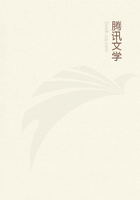
第15章 STATE SOVEREIGNTY(2)
Some of the words in MrBernard's definition reflect a much later influenceupon law -e.gthat of MrJohn AustinHe gives to the position that asovereign Government cannot be controlled by anotheran importance whichcan hardly be said to belong to it in International LawThe position is,in factindispensable in Austin's systemThere isin his viewan all-powerfulportion of every community which can do what it pleases as regards the rest,and this all-powerful portion or Sovereign is the author of lawNo objectioncan be taken to it from the view of Austin's theorybut it should be alwayscarefully remembered in our branch of jurisprudence that MrJohn Austin'sdefinition of Sovereignty is not that of International Lawthough in almostall the very modern treatises which have dealt with this subject solve confusionbetween the two is observableIt is necessary to the Austinian theory thatthe all-powerful portion of the community which make laws should not be divisible,that it should not share its power with anybody elseand Austin himselfspeaks with some contempt of the semi-sovereign or demi-sovereign stateswhich are recognised by the classical writers on International LawBut thisindivisibility of Sovereigntythough it belongs to Austin's systemdoesnot belong to International LawThe powers of sovereigns are a bundle orcollection of powersand they may be separated one from anotherThus aruler may administer civil and criminal justicemay make laws for his subjectsand for his territorymay exercise power over life and deathand may levytaxes and duesbut nevertheless he may be debarred from making war and peace,and from having foreign relations with any authority outside his territory.
This in point of fact is the exact condition of the native princes of India;and states of this kind are at the present moment rising in all the morebarbarous portions of the worldIn the protectorates which GermanyFrance,Italyand Spain have established in the Australasian seas and on the coastof Africathere is no attempt made to annex the land or to found a colonyin the old sense of the wordbut the local tribes are forbidden all foreignrelations except those permitted by the protecting stateAs was the declaredintention of the most powerful founder of protectorates of this kindPrinceBismarckif they were to resemble anything they were to resemble India underthe government of the East India Company.
As a matter of fact nearly all the modern writers on International Lawdo divide the rights flowing from the Sovereignty of states into groups.
Their distribution of those rights is not uniformand some of their divisionsare more defensible than othersGrotius divided the law of which he wrote,as is known from the title of his bookinto law of war and law of peace;and writers of our dayfollowing this distributionbut falling into anerror into which Grotius did not fallclassify all the rights of statesas rights of war and rights of peaceSome modern publicists make a moregeneral division into two classesfirstprimary rights or absolute rights,and in the second place conditional or hypothetical rightsthe first beingthe rights to which a state is entitled as an independent moral bodyorin other words that to which it is entitled during peacethe conditionalrights being those to which it is entitled when placed in special circumstances,the special circumstances contemplated being warThe subject of rights anddutiesarising in a condition of warwill be taken up at a different pointof this courseand to-day we will confine ourselves to the absolute or primaryrightsthose which a state possesses during peaceI observe in modern writersa tendency so to state this part of the lawand so to argueas to suggestthat these absolute rights are nothing more than those which may be logicallyinferred from the mere fact that a state has existenceThis is very simplyput in the account of the same class of rights which is given by the authorof a valuable work on International LawMrHallHe says'Under the conditionsof state life the right to continue and develop existence gives to a stareother classes of rightsThese arefirstto organise itself in such manneras it may choosesecondlyto do within its dominions whatever acts it maythink calculated to render it prosperous and strongthirdlyto occupy unappropriatedterritory and to incorporate new provinces with the free consent of the inhabitants,provided that the rights of another state over any such province are notviolated by its incorporationThus with regard to the first power or rightwhich is alleged to resideby the nature of the casein a sovereign state,the power of organising itself in such a manner as it may chooseit followsthat such a state may place itself under any form of government that it wishes,and may frame its social institutions upon any modelTo foreign states,the political or social doctrines which may be exemplified in itor whichmay spread from itare legally immaterial.'
This is correct lawand in our day I do not doubt that to most mindsit would seem plain thatthe condition of Sovereignty being taken for granted,these rights so stated followButas a matter of factconfining ourselvesto this branch of state powersnone have been more violently denied or disputed;and if they were preserved it is far less owing to their logical connectionwith the definition of state Sovereigntythan from the fact thatfrom thevery firstthe position that they exist has been plainly stated by the internationallawyersAnd the fact that these rights have been preserved is a signal tributeto the importance of International LawIt happens that the long peace whichextended from 181to 185wasboth at its beginning and at its endallbut broken up by the denial of these simple rights of which I have been speaking.